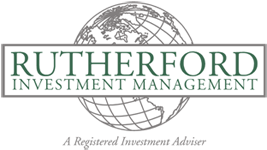Published August 10, 2012

In the meantime, the U.S. economy has been affected by the global slowdown. The Federal Reserve has noted that economic activity has decelerated somewhat over the first half of this year. Consumer spending has slowed, which is worrisome because consumer spending represents about 70 percent of GDP. Normally resilient restaurant chains such as McDonalds, Starbucks and Chipotle Mexican Grill noted a drop in consumer traffic.
However, a few bright spots have appeared. Jobless claims are mildly positive, durable goods orders are slightly better than expected, and U.S. GDP rose by 1.5 percent in the second quarter – slightly more than the 1.3 percent expected.
The Federal Reserve, after meeting July 31 and Aug. 1, decided to continue its accommodative stance and provide additional support as needed. This was a mild approach to the problems at hand, and disappointing to the markets.
In light of the slowdown in Europe, Mario Draghi, president of the European Central Bank, pledged to protect the eurozone. He was joined by German Chancellor Angela Merkel, and French President Francois Hollande. Their full-throated defense of the eurozone has been followed by little definitive action. The ECB in a recent meeting promised more meetings and initiatives, but little of substance. The markets were very disappointed with Draghi’s follow-up to his strong comments, and the European markets and the euro declined. It appears that the Europeans are not ready to move forward with a solution, but rather seek more meetings and discussions.
In general, the ECB has had to shoulder the burden of the slowing world economy as politicians have failed to address economic issues. But a climactic event may be needed for the leaders in both continents to move.
Prices of metals from gold to copper continued to slide. That signals a slowing economy with lack of economic leadership. One can only hope that behind the scenes someone is paying attention and moving to a solution.
Europe seems hopelessly deadlocked, with the Germans pitted against the rest of the eurozone. It is certainly in Germany’s best interest politically and economically for the eurozone to succeed, but it simply does not want bailouts of sovereigns or banks.
The U.S. also faces a “fiscal cliff” this winter when the Bush tax cuts expire and spending cuts commence. The U.S. House has passed a tax cut extension, but politics will keep the extension bottled up in the Senate. The outcome of the presidential election probably will determine the outcome of the debate over tax extensions. However, if they are not extended, and the sequestration of expenditures commences, we will see a significant drag on the economy; hence the dependency on the ECB for relief.
On my recent trip to Europe I got a ground-level view of the eurozone, and found strong support for it and the ECB. The ECB has made substantial investment in the former communist countries, and their economies will benefit. The ECB also has higher standards for business ethics than the former communist administration; this puts pressure on those countries that want to enter the ECB to clean up their act, and encourages present members to be even better than they are.
Eurozone citizens seem to understand that the ECB is good for them, wish to join and want it to survive. The younger people are far more entrepreneurial than older folks who long for their regular paychecks with little or no work. Today’s consumers don’t have to stand in long lines for uncertain results; however, if they don’t have money to buy things, it doesn’t matter much to them whether they are a communist or a capitalist, so older people prefer the regular-paycheck-and-no-work economy.
I saw plenty of evidence of younger people who were working hard to make a dollar, and they will be the ones who rebuild the economies of the former Eastern Bloc. The nations probably need another generation to die before they can evolve successfully.
For the balance of the year, I expect challenges to the economy and the markets. For the longer term, I expect muted returns; but if you are circumspect, you should be rewarded. Expect volatility, but don’t panic. The markets will be headline driven, while companies quietly make their way. Sometimes the boring things, such as dividend and profits, are best.
Many investors have coped with the recent market volatility by selling out of equities. But a cash portfolio is unlikely to grow to levels that will satisfy many of their long-term needs.
Given that today’s inflation rate (1.7 percent) is greater than the interest earned on cash (almost zero), a cash portfolio may be locking in negative real yields – and thereby losing value. In other words, in their desperation to achieve safety in the short term, investors may be sacrificing it in the long run.
Originally posted in the Daily Journal of Commerce, Portland OR
